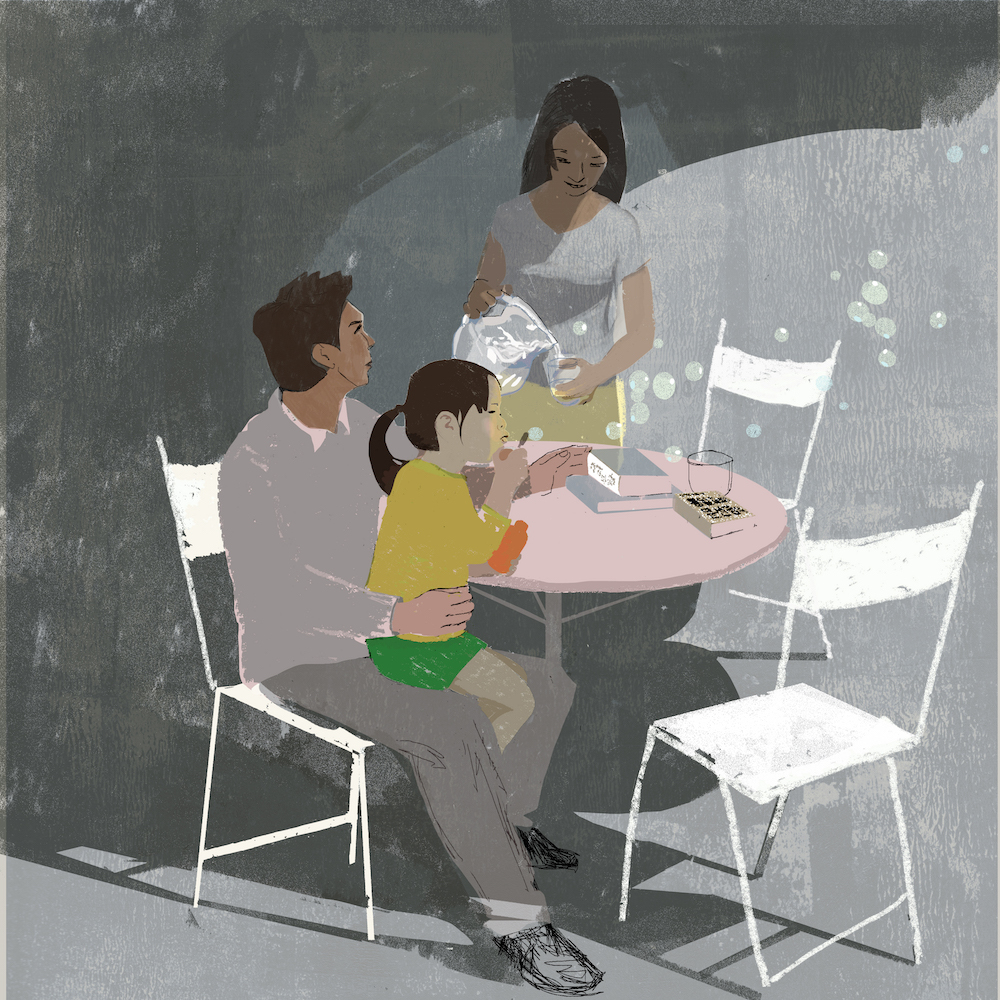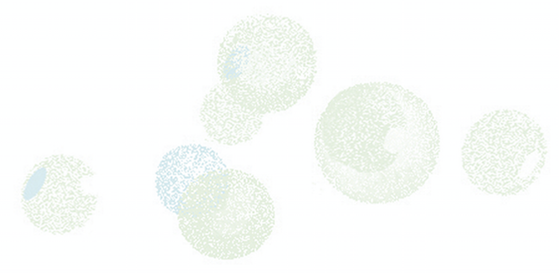
Cynicism is seldom a healthy response to deep corruption, but it is hard to resist in response to Pope Francis’s Laudato Si, “Praise be to you.” This recent encyclical systematically points out the obvious: We are destroying our earthly home; we should instead care for it, and we can care for it. The reason for cynicism is not that the encyclical patronizes us, but that we would need to be told what is so obvious. Yet we do.
Christians have recently adopted the term “creation” as a fitting substitute for “environment.” This is part of the problem, because it subtly reinforces the false impression that water, soil, plants, animals, and other parts of non-human life—not least the air we breathe—lie around us, neatly outside us. But in fact we are composed intricately over time of precisely these non-human parts of the heavens and the earth, for better or worse. Because they nourish and shape our bodies, our memories, our sense of place, and all the relationships that bind human beings to one another, they are not only around us but also in us. This unfathomable and intricate whole of life, of which God has made us a beautiful and powerful part, is what the Bible calls “creation.”
 The problem, then, for which “restoration” names a path of repentance and repair, is the estrangement that has come to prevail in the intricate relationship of human beings to the God-given life both around them and in them. It afflicts particularly those of us cultured in industrialized societies like that of the United States. The very patterns of language by which we relate to non-human life, which we have been formed to regard primarily as quantifiable and placeless “raw materials,” or worth preserving as “nature” mostly for human recreation, exhibit this estrangement. Our language and corresponding systems of thought and aspiration perpetuate what we have inherited. But this estranged relationship is especially manifest in the deeply established ways that can be described as exploitive. We take from the non-human life by which we live, but fail to make any sound commitment to sustain it and maintain its integrity. This systematic human behavior ta destructive and self-destructive disease from which we must repent.
The problem, then, for which “restoration” names a path of repentance and repair, is the estrangement that has come to prevail in the intricate relationship of human beings to the God-given life both around them and in them. It afflicts particularly those of us cultured in industrialized societies like that of the United States. The very patterns of language by which we relate to non-human life, which we have been formed to regard primarily as quantifiable and placeless “raw materials,” or worth preserving as “nature” mostly for human recreation, exhibit this estrangement. Our language and corresponding systems of thought and aspiration perpetuate what we have inherited. But this estranged relationship is especially manifest in the deeply established ways that can be described as exploitive. We take from the non-human life by which we live, but fail to make any sound commitment to sustain it and maintain its integrity. This systematic human behavior ta destructive and self-destructive disease from which we must repent.
I have little doubt that when future generations are enduring wars that are more explicitly over water or the scarcity of arable land than current wars—assuming our current trajectory is not drastically altered—they will look at the generations of our time as barbaric, much as we do past generations addicted to social and economic evils like slavery. Past generations who, incidentally, were often far more responsible than we are when it comes to caring for a community’s place, including its elaborate and dynamic relationship with other places. But we need not consider our current estrangement only in terms of what our current patterns of life will entail over time. For those with ears to hear and eyes to see, the signs of our estranged relationship with non-human life, and therefore with ourselves, are already ubiquitous, though they are often more glaring at some geographic remove from people and places that hold the lion’s share of power in our day. We have largely destroyed the tree canopy of the Los Angeles Basin and squandered its groundwater, for example, but far more devastating is what our mundane patterns of life in Los Angeles cost places, people, and other life far from our sight and mind, hidden by distance and dollar values. “Restoration” involves repentance from destroying our own place, which we always share with others. But it also involves addressing the addiction of so many of us to treating distant people and their places as mines for our own ways and place. If we don’t, that mining will continue to escalate and expand until it consumes our own place, including us. People who live in their place by damaging other people and their places become people who damaged their own place and themselves.
It would be naive to imagine that the estrangement I’m trying to describe affects only the relationship between human and non-human life. To give but one example, Fuller alum and Yale professor Willie Jennings has recently given us a compelling account of how our estrangement from non-human life, and our corresponding placelessness, have been at work for centuries in the spawning and spreading of the racism (*The Christian Imagination: Theology and the Origins of Race*). Those who relate to their places as raw materials have been prone to reduce other people to chattel and to institutionalize the resulting scale of being. Especially striking in his account is the prominent role superficially orthodox theology has played in the production of racism. And Jennings is right, I think, to insist that racial reparations will remain fleeting so long as we refuse to repair the way we live in our places, to work at restoring our estranged relation to non-human life.
RESTORING CREATION
Wendell Berry
The Peace of Wild Things
When despair for the world grows in me
And I wake in the night at the least sound
In fear of what my life and my children’s lives may be,
I go and lie down where the wood drake
Rests in his beauty on the water, and the great heron feeds.
I come into the peace of wild things
Who do not tax their lives with forethought
Of grief. I come into the presence of still water.
And I feel above me the day-blind stars
Waiting with their light. For a time
I rest in the grace of the world, and am free.© 2012 by Wendell Berry, from New Collected Poems. Reprinted by permission of Counterpoint.
Earlier I noted that the way we human beings live has immense ramifications for the rest of creation around us and in us. This is why the way we relate to non-human life always has consequences for ourselves. Yet too many of us have stopped considering our life in terms of how it relates to non-human life or what future generations will inherit from us. This kind of thinking is not sustainable and deeply at odds with the intergenerational nature of faith in the Bible (e.g., Gen. 15; Heb. 11). In addition to asking what our life is doing to others who are distant from us in space or time, we must ask what our inherited patterns of life in industrialized societies are currently doing to our own character and our own neighbors. These are questions at once personal and political, yet the peculiar way in which they have been politicized, particularly in the US, makes it hard to bring them clearly to light. Under a somewhat sterile term like “environmentalism” they have too often been bundled politically with other issues, such that many—including many evangelical Christians—discount these questions or counter them with claims about the need for “growth” or “investment.” Then there is the matter of Christian doctrine that anticipates a future escape from the earth, or imagines humanity redeemed by God as placeless souls, resurrected upon death.
In the face of these not unorthodox doctrines, restoration demands the Christian teaching of the empty tomb: not a disembodied or brand-new-bodied Jesus, but the resurrection of Jesus’ crucified body, the seed of a whole creation healed rather than thrown away. Evangelical Christians, to my thinking, are a long way from recovering the deep wisdom of the Old Testament with respect to land and place, and from working out the complex implication of creation’s intricacy in the New Testament presentation of Jesus, the Spirit, and the church community. Given the depth of our particular need for restoration and repentance, then, we may be thankful for the support of other traditions, including the Catholic one currently represented by Pope Francis, whose recent encyclical on our care of our places is worthy of patient reflection.
Many who detect in the encyclical a threat to some critical piece of their political platform, or irreverence for the market forces they hold dear, will not read it with any charity or introspection, but move quickly to brand and dismiss it. There is plenty of fodder for that in its many pages, whose theological discourse ranges across biblical testimony, traditional Catholic teaching, molecular biology, metaphysics, political economy, spirituality, technology, moral philosophy, and so on. Those so inclined will not have to look hard for soundbites or mantras with which to make Laudato Si into a straw man. Some Christians, both Catholics and others, have already made it clear that they prefer Christianity to remain conveniently in the private and post-mortem provinces of life, so that they can continue what is, for many, an addiction to profitable false gods. But, as Pope Francis reminds us, the gospel is that Jesus is the gentle but persistent Lord of the whole world.
I suppose dismissive cherry-picking is as much a danger for those who applaud Laudato Si—those who reduce it to a simple endorsement of the scientific consensus on climate change, for example. The same cultural folly that needs the pope to tell us to stop destroying our home and to care for it, leads us to receive his teaching as only a boost or threat to our factional views. Perhaps that is why so much of the encyclical pleads with us to listen to one another and cooperate patiently across the divides we have made: faith and science, socialists and capitalists, Christians and non-Christians, businesses and nonprofits, wealthy countries and poor ones. One hopes that evangelicals in particular can grow out of the resistance many of us have to Catholicism and tend thoughtfully to this latest gift from the riches of Catholic social teaching.
Why do we need to hear the pope tell us what is obvious? It is much the reason that a child needs a mother to point out what is right in front of her but she hasn’t the experience to have learned, like keeping respectful distance from a poisonous snake or drinking sparingly on a long hike. Only, in our case, it is a learned ignorance that we have acquired by experience, with far more at stake. We have learned a way of life in which a crowd of romanticized but destructive patterns of production, communication, and consumption form our appetites and claim most of our attention, blinding us to what lies right before us. Our appetites and attention must instead be directed holistically by the intricate relationships that constitute the health of our place over time, and by the complex web of communities’ places that is our created home. The consequence of our learned ignorance is a systematic externalization of costs from the manifold processes of our life, so that we do not name them, see them, or feel them, much less pay them ourselves—what Pope Francis repeatedly calls “the throwaway culture.”
keeping respectful distance from a poisonous snake or drinking sparingly on a long hike. Only, in our case, it is a learned ignorance that we have acquired by experience, with far more at stake. We have learned a way of life in which a crowd of romanticized but destructive patterns of production, communication, and consumption form our appetites and claim most of our attention, blinding us to what lies right before us. Our appetites and attention must instead be directed holistically by the intricate relationships that constitute the health of our place over time, and by the complex web of communities’ places that is our created home. The consequence of our learned ignorance is a systematic externalization of costs from the manifold processes of our life, so that we do not name them, see them, or feel them, much less pay them ourselves—what Pope Francis repeatedly calls “the throwaway culture.”
As the encyclical explains, we externalize costs from the present by exacting them on people and other created life of the future, treating our very own lands and yards, for instance, in such a way that will deprive future generations of their benefit. We externalize the costs of the way we live in one part of the city to other places in the same city or to the countryside, where we cannot see or feel their effect on us. We externalize the costs of industrialized economies to places in the world where local powerlessness, elitism, and the absence of adequate regulation permit it. Refusing even the limits of a jumbo national home, too many multinational corporations do in such less visible places “what they would never do in developed countries or the so-called first world” (par. 51). That is, they exploit them, including their local human populations, as mines and as dumps. For their business is profitable for them and small parts of their national “home” today, while eventually devastating for all if unchecked. Costs that are externalized in such ways are too complex and far-reaching to be measured with money, and the claims of these enterprises to “profit” and “progress” are untruthfully partial.
Predictably, some authorities have already begun to speak against the encyclical for its refusal to affirm the forces of free markets and technology, since these have, in their view, blessed us with such bounty. But this is yet another case of externalizing costs, for the “blessings” attributed to these forces have, to a large extent, come at great cost to many people and places already, including plants, animals, and other gifts of God. Such sacrifices are deemed “worth it” by such critics, since they do not feel those sacrifices themselves, cannot imagine that those “blessings” could have been obtained more responsibly, and are unable to see that their negative impact is still far from abating. More patient readers will find in the pope’s vision for cultivating a healthy home all kinds of room for markets, technology, and other such terms that are wrongly divinized or demonized in our sloganeering. It’s a matter of thinking holistically and carefully about such terms rather than using them for a factional platform. It’s a matter of refusing to use such terms to justify poor treatment of underrepresented people and other silenced parts of the world. It’s a matter of ending our romance with technology and seeing that we ourselves must change, along with our technology, if we are to repent and live as we pray, “Thy kingdom come, thy will be done, on earth as it is in heaven.”
One does not have to labor to discern in Laudato Si the theme that “a true ecological approach always becomes a social approach; it must integrate questions of justice in debates on the environment, so as to hear both the cry of the earth and the cry of the poor” (par. 49). Making the vulnerable pay the costs of others’ conveniences and excesses is among the primary modes of cost externalization in the current order of things. The theme encapsulated in this quotation is one of the encyclical’s great strengths. It exposes the fact that a culture that so disproportionately impoverishes and jeopardizes people of color, whether in the US or further afield, is the same throw-away culture that does not show enough concern for future generations, for the beauty of other places, or even a deep beauty of its own place. It can see only itself, and that very incompletely. Whatever it strives to possess it reduces to “raw materials,” whose post-consumption excess is “disposable.”
I invite you to take time to read the encyclical, the tone of which is conciliatory and constructive, especially its guidelines for healthy ways forward in the final section. There is plenty to quibble with, of course. I looked in vain, for example, for any explicit appeal to divest ourselves from corporations that are at the forefront of damaging the human home. This is an urgent matter for Fuller as it is for many other institutions promoting the kingdom of God. But rather than quibble with Christian teaching that calls our attention to the obvious, we are wiser to consider it thoughtfully and respond actively to its plea for a culture of care and loving sustainability. It is embarrassing, I know, to face the learned childishness evident in our inability to care for our own, God-given home. We prefer to imagine and market ourselves as above reproach, or at least as not knowing any better. But face our culpability we must, for praising God means caring for what God has given. Perhaps that is why it is good, despite the warning of Matthew 23:9, that the pope is called “Holy Father.” In any case, as we attempt to learn our place within God’s creation, Laudato Si offers some promising paths from systems of neglect to ways of restoration.
The post Restoring Creation: With Reflections on “Laudato Si” appeared first on Fuller Studio.